Hello Friend,
Something I have learned in my career is that there are certain times when it is critical to manage your assets and resources. One such time is when you are hiring new employees. You cannot impact your workforce more than during the period between a job offer and onboarding. Nothing else is more impactful! At that point, they learn your company’s communication style, how you do culture, how you handle interactions. They learn if you will be proactive in managing their expectations and if they believe you can meet those expectations or if you are just going to be MIA. When you are missing in action you lose the opportunity to create loyalty and brand identification before they even start. Chances are that if they accepted your offer they are excited about working with you and for you. Don’t squander that enthusiasm by not having a plan!
If you know it takes 2-3 weeks or even a month to get from offer to onboard, make sure you set that expectation with them. Give them these four things
- Communication – Tons of Communication! Tell them what they should wear and the normal dress code, what benefits are available to employees, how they can get involved, what are the things we do as a company, and what is our core value(s). What is our primary goal and what does my job look like? How do I fit into our primary goal? Do I report to the same place I interviewed, or am I going somewhere else? Is there anything I should know before the day I arrive other than I will have to do paperwork?
- Pre-Employment Checklists – Make sure to have a separate communication about what needs to be done before arrival. Paperwork, testing, health screenings, and drug tests should be explained and completed as best as possible before their first day. What can they do to assist you in completing this process, and what forms do they need to supply you? These are especially true items when we are working with younger hires who may be entering their first professional work experience with us. Even if your process is faster for those in the field keep this checklist for them as well. After all, they are professionals at their craft too. Don’t limit this checklist to just before the day – include what to bring with them the first day, whom their point of contact is for questions on forms, and returning paperwork beforehand or on day one.
- Single point of contact – Keep this person as close to the new hire as possible- possibly a mentor or direct supervisor So does that mean everybody has to be an expert at everything in the company – well of course not, I can’t be an expert on a what to have in your toolkit if I am the HR professional but I also can’t be an expert on HR if I am an outstanding project superintendent. It is important that everyone knows the contacts or has a list of them. Nothing would be worse than being the HR person who says I don’t think I know your superintendent or the superintendent who says I’ve never seen the name of our HR person so I guess I can’t help. We need to know who can help them and then make sure to follow up and ensure that our experts are following through. They want and need one person to “own” them from start to finish and when that person is someone they work for or with it builds relationships and fosters employee engagement
- Culture introduction – If you can SWAG them out before they arrive. Let them show up with some company pride on day one. Invite them over for a tour, or to attend an event. Having a safety stand-down or by craft toolbox talk? Include them. Have employee resource groups like young employees or women in construction they can be part of? Introduce them to leaders or invite them to an event. No event happening before they start. No worries, get the connections on their calendar and make sure they know how to find out about future events and opportunities. If you don’t have formalized events take them to lunch or to a jobsite. Nothing is easier than finding my way to a location like a jobsite in the middle of the day without traffic than trying to find it in the dark on day one.
None of this is rocket science or even really hard but I believe life is really about the little things. It is these little things that make it that much easier to manage your workforce and keep you moving forward. At least that is what I’ve learned.
Collaboratively,
Angela Robbins Taylor
C3 Executive Director

